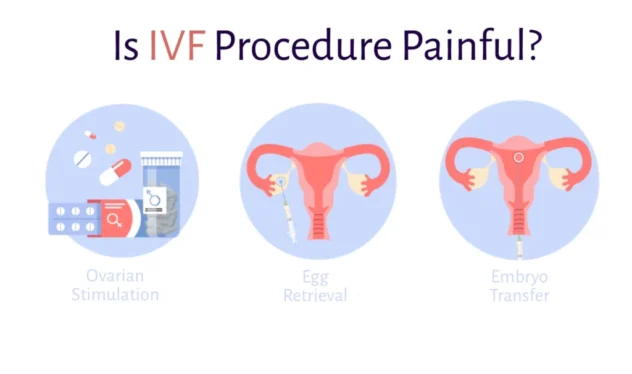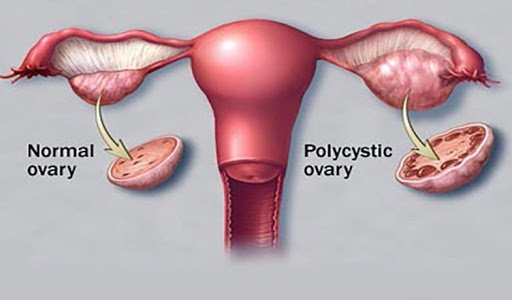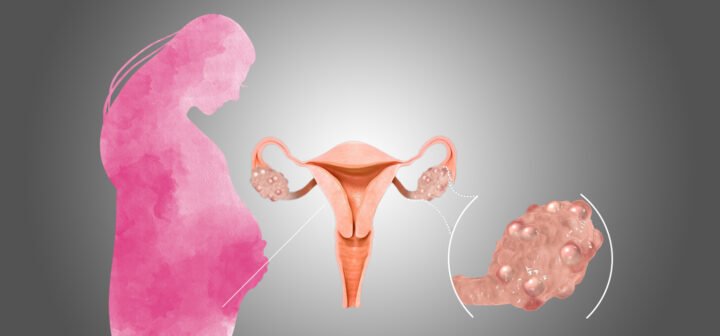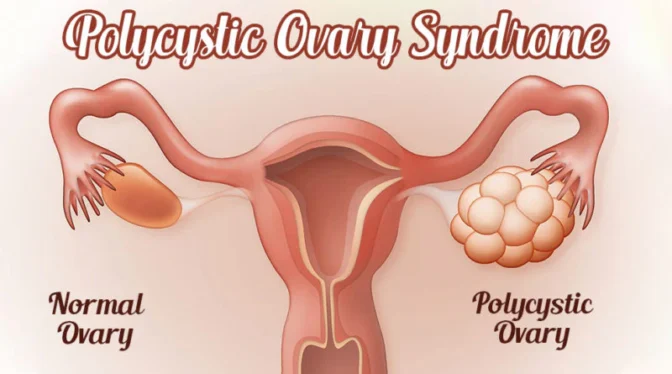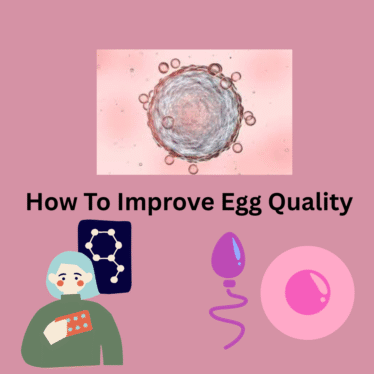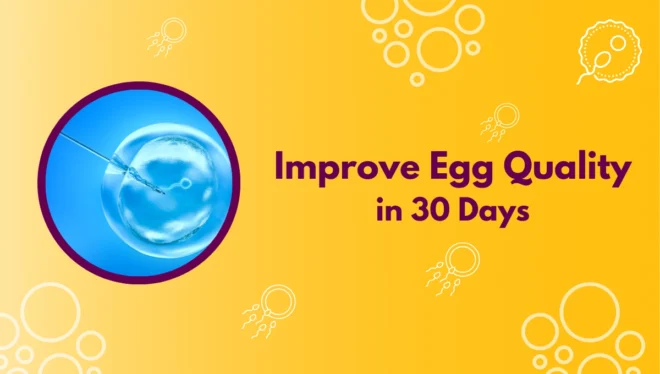What Lifestyle Causes PCOS? 7 Key Risk Factors to Avoid in 2026
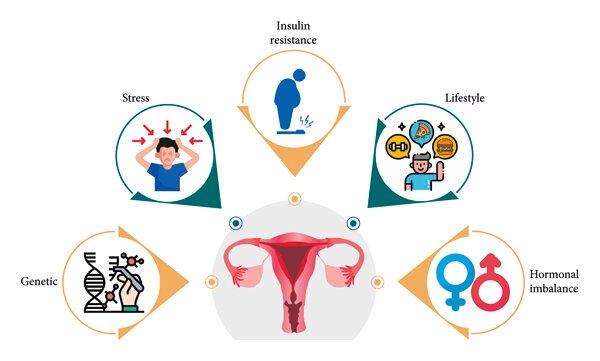
Polycystic Ovary Syndrome, Or PCOS, Is A Common Health Condition That Affects Millions Of Women Around The World. It Is Caused By A Hormonal Imbalance And Problems With Metabolism, Which Can Lead To Irregular Periods, Weight Gain, Acne, Infertility, And Other Health Issues.
While PCOS Is Partly Genetic, Your Lifestyle Plays A Big Role In How It Develops And How Severe It Becomes. In Today’s World, Many Of Us Are Dealing With Stress, Unhealthy Food, And Poor Sleep—All Of Which Can Trigger Or Worsen PCOS Symptoms.
In This Blog Post, We’ll Break Down The 7 Key Lifestyle Risk Factors That Cause Or Worsen PCOS And What You Can Do To Avoid Them In 2026. We’ll Keep Things Simple, So Anyone Can Understand And Take Action For Better Health.
What Is PCOS?
PCOS Stands For Polycystic Ovary Syndrome. It’s A Condition Where A Woman’s Ovaries Produce Too Much Of The Male Hormone Androgens, And Often Don’t Release Eggs Regularly. This Leads To Small Fluid-Filled Sacs (Called Cysts) Forming On The Ovaries.
Common Symptoms Include:
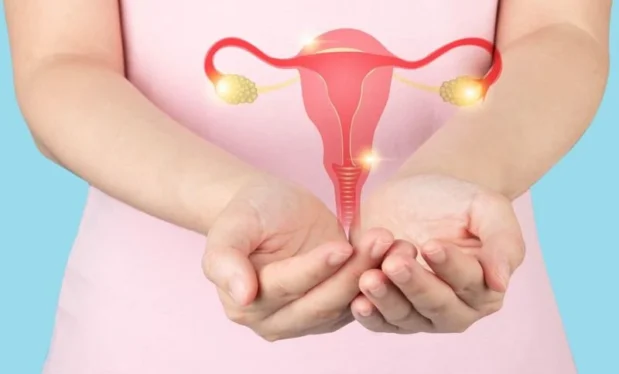
- Irregular Or Missed Periods
- Excess Facial Or Body Hair (Hirsutism)
- Acne Or Oily Skin
- Weight Gain Or Trouble Losing Weight
- Thinning Hair Or Hair Loss
- Infertility
- Mood Swings Or Depression
PCOS Is Also Linked To Insulin Resistance, Which Means Your Body Has Trouble Using Insulin Properly. This Can Lead To Type 2 Diabetes, High Cholesterol, And Heart Disease If Not Managed Well.
7 Key Lifestyle Risk Factors That Cause Or Worsen PCOS
Let’s Take A Closer Look At The Top 7 Lifestyle Choices That May Increase Your Risk Of PCOS Or Make Your Symptoms Worse—And How To Avoid Them In 2026.
1. Unhealthy Diet (High Sugar And Processed Foods)
One Of The Biggest Triggers For PCOS Is A Poor Diet—Especially One High In Sugar, White Carbs, Processed Foods, And Unhealthy Fats. These Foods Increase Your Blood Sugar And Insulin Levels, Which Can Lead To Insulin Resistance, A Major Cause Of PCOS.

Examples Of Harmful Foods:
- Sugary Drinks (Soda, Sweetened Tea, Energy Drinks)
- White Bread, Pasta, Pastries
- Fast Food, Fried Food
- Packaged Snacks And Chips
- Processed Meats
Better Choices In 2026:
- Whole Grains Like Brown Rice And Oats
- Fresh Fruits And Vegetables
- Lean Proteins (Chicken, Fish, Tofu)
- Healthy Fats (Avocado, Nuts, Olive Oil)
- Water, Herbal Teas, Unsweetened Drinks
Tip: Try To Follow A Low-GI (Glycemic Index) Diet To Keep Blood Sugar Stable And Reduce PCOS Symptoms.
2. Sedentary Lifestyle (Lack Of Exercise)
Being Inactive Or Sitting For Long Periods Can Increase Weight Gain And Insulin Resistance, Both Of Which Are Closely Linked To PCOS.
Regular Exercise Helps:
- Regulate Your Menstrual Cycle
- Improve Insulin Sensitivity
- Burn Fat And Reduce Belly Fat
- Boost Your Mood
- Balance Your Hormones
Simple Exercises To Start In 2026:
- 30 Minutes Of Walking Daily
- Home Workouts (YouTube Or Fitness Apps)
- Dancing, Yoga, Or Pilates
- Light Weight Training Or Resistance Bands
- Swimming Or Cycling
Tip: You Don’t Need To Do Intense Workouts. Consistency Matters More Than Intensity.
3. Chronic Stress

Stress Affects Your Hormones—Especially Cortisol, Which Can Worsen PCOS Symptoms. When You’re Always Stressed, Your Body Is In “Fight Or Flight” Mode, Which Messes With Your Menstrual Cycle And Increases Cravings For Sugar And Junk Food.
Signs Of High Stress:
- Trouble Sleeping
- Anxiety Or Mood Swings
- Overeating Or Loss Of Appetite
- Feeling Tired All The Time
How To Reduce Stress In 2026:
- Practice Deep Breathing Or Meditation (Even 5 Minutes Helps)
- Get Enough Sleep
- Say No To Too Many Commitments
- Take Breaks During The Day
- Spend Time In Nature Or With Loved Ones
Tip: Use Relaxation Apps Like Calm Or Headspace To Help Manage Stress Easily.
4. Lack Of Sleep
Poor Sleep Doesn’t Just Make You Tired- It Can Lead To Hormonal Imbalance, Increased Hunger, And Weight Gain, All Of Which Make PCOS Worse.
Research Shows That Women Who Sleep Less Than 6 Hours A Night Are More Likely To Have Irregular Periods And Higher Insulin Resistance.
Better Sleep Habits In 2026:
- Go To Bed And Wake Up At The Same Time Daily
- Avoid Screens (Phone, TV) 1 Hour Before Sleep
- Keep Your Room Dark And Cool
- Avoid Caffeine In The Afternoon
- Practice A Calming Bedtime Routine
Tip: Aim For At Least 7–9 Hours Of Quality Sleep Each Night To Support Hormone Balance.
5. Weight Gain And Obesity
Not Every Woman With PCOS Is Overweight, But For Many, Weight Gain Makes Symptoms Worse. Extra Body Fat, Especially Around The Belly, Leads To More Insulin Resistance And Hormonal Imbalance.
Why Weight Matters:
- Increases Inflammation In The Body
- Raises Male Hormone Levels (Androgens)
- Makes It Harder To Ovulate Regularly
- Increases Risk Of Diabetes And Heart Disease
Healthy Weight Tips In 2026:
- Eat Smaller, Balanced Meals
- Don’t Skip Meals (This Can Cause Binge Eating)
- Exercise Regularly
- Drink More Water
- Avoid Crash Diets—They Can Harm Your Hormones
Tip: Even 5–10% Weight Loss Can Greatly Improve PCOS Symptoms And Fertility.
6. Smoking And Alcohol Use
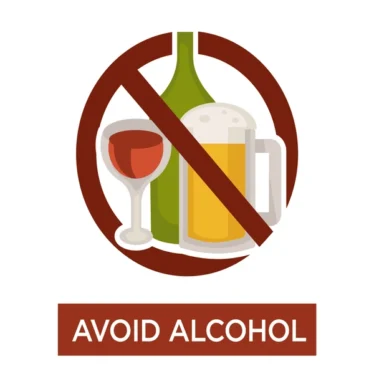
Smoking And Heavy Alcohol Use Are Both Harmful To Hormone Health. Smoking Increases Levels Of Male Hormones, Worsens Insulin Resistance, And Can Affect Fertility. Alcohol, Especially In Excess, Affects Liver Function And Hormone Detoxification.
Better Choices In 2026:
- Quit Smoking Completely (Ask Your Doctor For Help Or Try Nicotine-Free Alternatives)
- Reduce Alcohol To Occasional Light Drinking
- Try Alcohol-Free Alternatives Like Mocktails Or Herbal Drinks
- Focus On Liver-Friendly Foods: Leafy Greens, Lemon Water, Beets
Tip: Your Hormones Need A Healthy Liver To Function Well—Take Care Of It By Avoiding Toxins.
7. Ignoring Early Symptoms
Many Women Ignore Early PCOS Symptoms, Thinking Irregular Periods Or Acne Are Just “Normal.” But Early Diagnosis And Treatment Can Prevent Long-Term Problems Like Infertility, Diabetes, And Heart Disease.
Symptoms Not To Ignore:
- Irregular Or Missing Periods
- Sudden Weight Gain
- Hair Loss Or Excessive Hair Growth
- Mood Swings Or Fatigue
- Acne That Doesn’t Go Away
What To Do:
- See A Gynecologist Or Endocrinologist
- Get Blood Tests (Hormones, Insulin, Glucose)
- Ask For An Ultrasound Of The Ovaries
- Track Your Symptoms And Periods With A Journal Or App
Tip: The Earlier You Start Managing PCOS, The Better Your Long-Term Health Outcomes Will Be.
Final Thoughts: You Can Take Control Of PCOS
PCOS Can Feel Overwhelming, But Remember This: You Have More Control Than You Think. By Changing Your Daily Habits And Avoiding These 7 Key Lifestyle Risks, You Can Greatly Reduce Symptoms, Balance Your Hormones, And Improve Your Overall Health.
Let’s Recap The 7 PCOS Lifestyle Risk Factors To Avoid In 2026:
- Eating Too Much Sugar And Processed Food
- Lack Of Physical Activity
- Chronic Stress
- Poor Sleep Habits
- Weight Gain And Obesity
- Smoking And Heavy Alcohol Use
- Ignoring Early Warning Signs
Start Small. Even A Few Changes Can Make A Big Difference. PCOS Is A Long-Term Condition, But With The Right Lifestyle Choices, You Can Live A Full, Healthy Life—And Possibly Reverse Many Of Its Symptoms.
Bonus: When To See A Doctor
If You Suspect You Have PCOS, Don’t Delay. See A Doctor If Or You Can Book Appointment With Us At www.brosisherbal.com Or You Can Buy Our Period Health Product By Clicking Here
- Your Periods Are Irregular Or Stop Completely
- You’re Gaining Weight Quickly Without Reason
- You Have Unusual Hair Growth Or Hair Loss
- You’re Trying To Get Pregnant And Having Trouble
- You Feel Constantly Tired, Moody, Or Anxious
Early Treatment Can Help You Avoid Complications And Feel Better Sooner.

